 |
|
British Prime Minister David Cameron on Tuesday kicks off his first official visit to China since he took office in May. Featuring more than 40 business leaders and four of Cameron's senior ministers from his government, it is the biggest such delegation Britain has ever sent to China. "It is the biggest delegation ever to China, led by a British Prime Minister". |

 |
|
China-Britain cooperation outweighs competition | |||
|
Chinese President meets British PM | |||
|
Putting great store in Sino-UK ties | |||
|
China-UK economic talks end with important agreements | |||
|
British PM starts official visit to China | |||
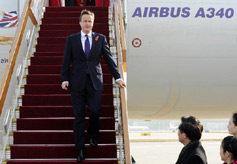 |
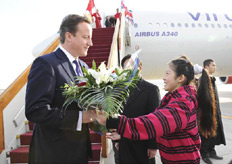 |
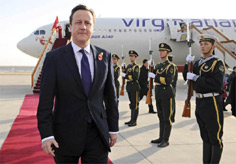 |
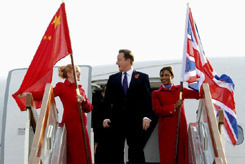 |
|
UK's Cameron seeks to double trade with China | |||
|
Sino-UK trade to top PM visit | |||
|
UK leader's China visit to be 'historic' | |||
|
British PM to visit China with largest-ever delegation | |||
 |
 |
Cameron sees China's rise as an opportunity |
 |
'Britain is wide open to Chinese finance' |
 |
UK's Cameron in Beijing on business-centered visit |
 |
China, UK seek closer ties in economic dialogue |
 |
|
Here are some details of Sino-UK relations: -- According to Chinese statistics, from January to September 2010 trade between the two countries grew to $35.75 billion, up almost 30 percent year-on-year and higher than before the financial crisis. -- Britain ranks alongside Germany as the largest EU investor in China, and China has become the sixth largest investor in Britain. China's investment in Britain has grown from 59 projects in 2008-09 to over 74 projects in 2009-10, up 25 percent. -- Finance Minister George Osborne visited China in June, shortly after the Conservative-Liberal Democrat coalition took office. He said that China had managed its economy well during recent global turmoil and he hoped it was preparing to take on a larger world leadership role in financial and political affairs. -- In January 2009, Chinese Premier Wen Jiabao arrived in London as part of a European tour aimed at tackling the global financial and economic crisis and improving relations. -- A year earlier, then-Prime Minister Gordon Brown told China on a visit that he wanted Britain to be the number one choice for Chinese trade and investment, as he sought to take the relationship to a "higher level". -- In October 1999, at the invitation of Queen Elizabeth, Jiang Zemin paid the first state visit by a Chinese president to Britain. |
|
China-Britain ties keep good momentum: ambassador |
China, Britain hold strategic dialogue in Beijing The two countries used to conduct their strategic dialogues at a vice foreign minister-level. The mechanism was lifted to a higher level during former British Foreign Secretary David Miliband's visit to China in March. >>> |
Shanghai Expo pavilion success heralds better Sino-UK ties The UK Pavilion has been the busiest of all the European pavilions, with more than 7 million visitors. The Zero-Carbon and Liverpool Pavilions, in addition, are also very popular in the Expo. >>> |
 |
|
A boost to Sino-UK relations |
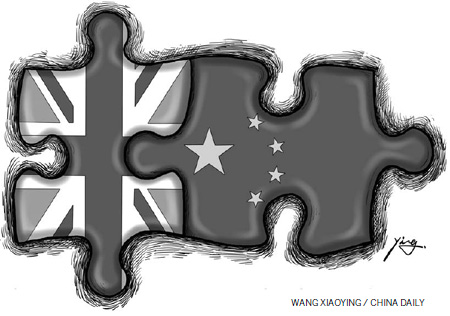 |
|
Pragmatic delegation | |
|
Where will China-Britain relations go? As Tory leader David Cameron entered 10 Downing Street on May 11, Britain's first coalition government under parliament since 1974 was finally formed. We had some political skirmishes between China and UK during Gordon Brown's term. In addition to disagreements over human rights and Darfur, the two sides traded barbs over emission reduction and tariff barriers. How will the new government define China-Britain relations? Will it make a fresh start or continue the path of Brown's policy? >>> | |
|
Good start to Sino-UK ties Putting aside the talks about China's growing economic interdependence with the rest of the world, Miliband's statement could be seen as a declaration that London now sees Beijing as a partner and is willing to expand cooperation. If this is true, it is good news for bilateral ties and its long-term growth. At the moment, we hope London will make concrete efforts to mend the marred relationship with Beijing. >>> | |